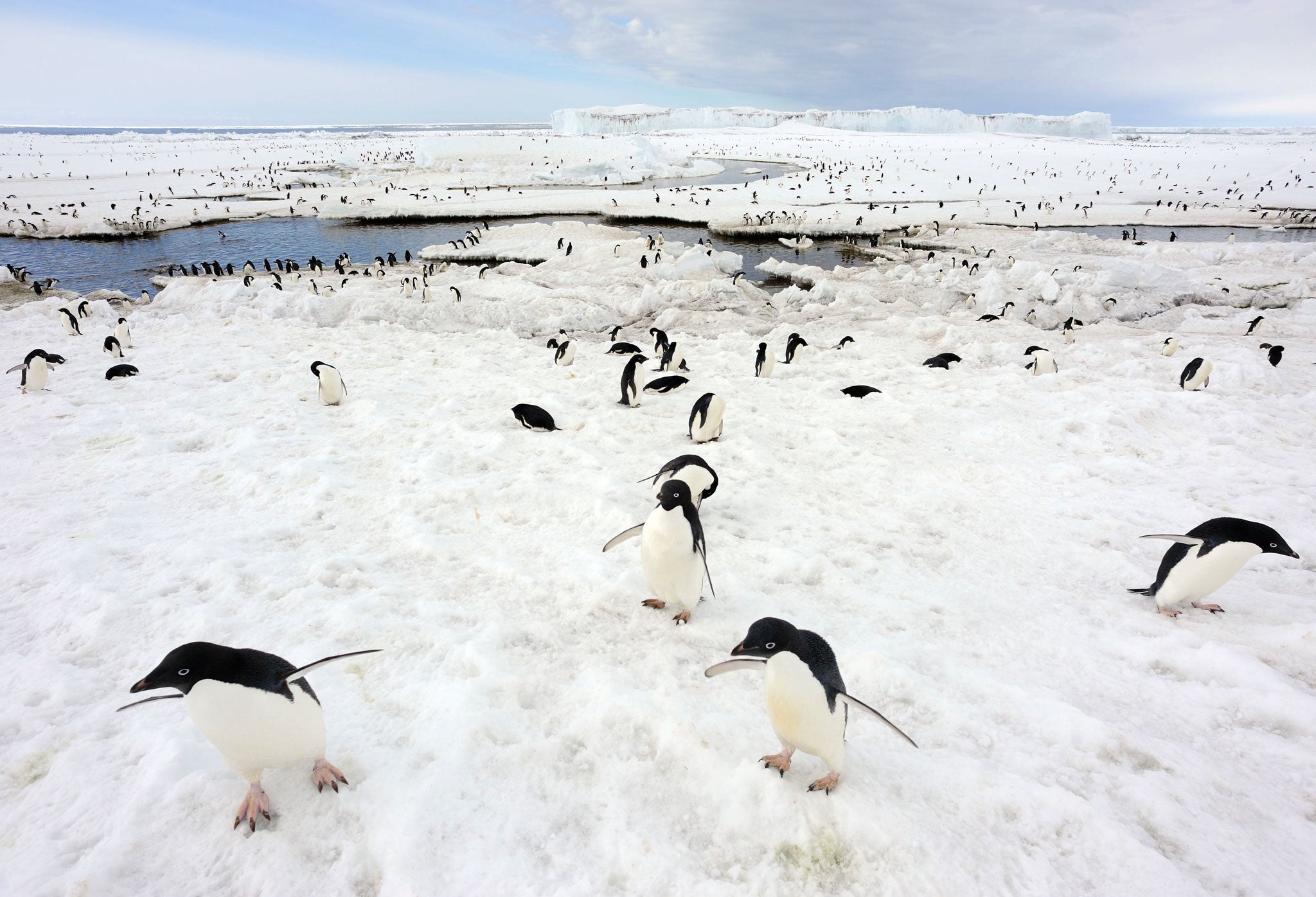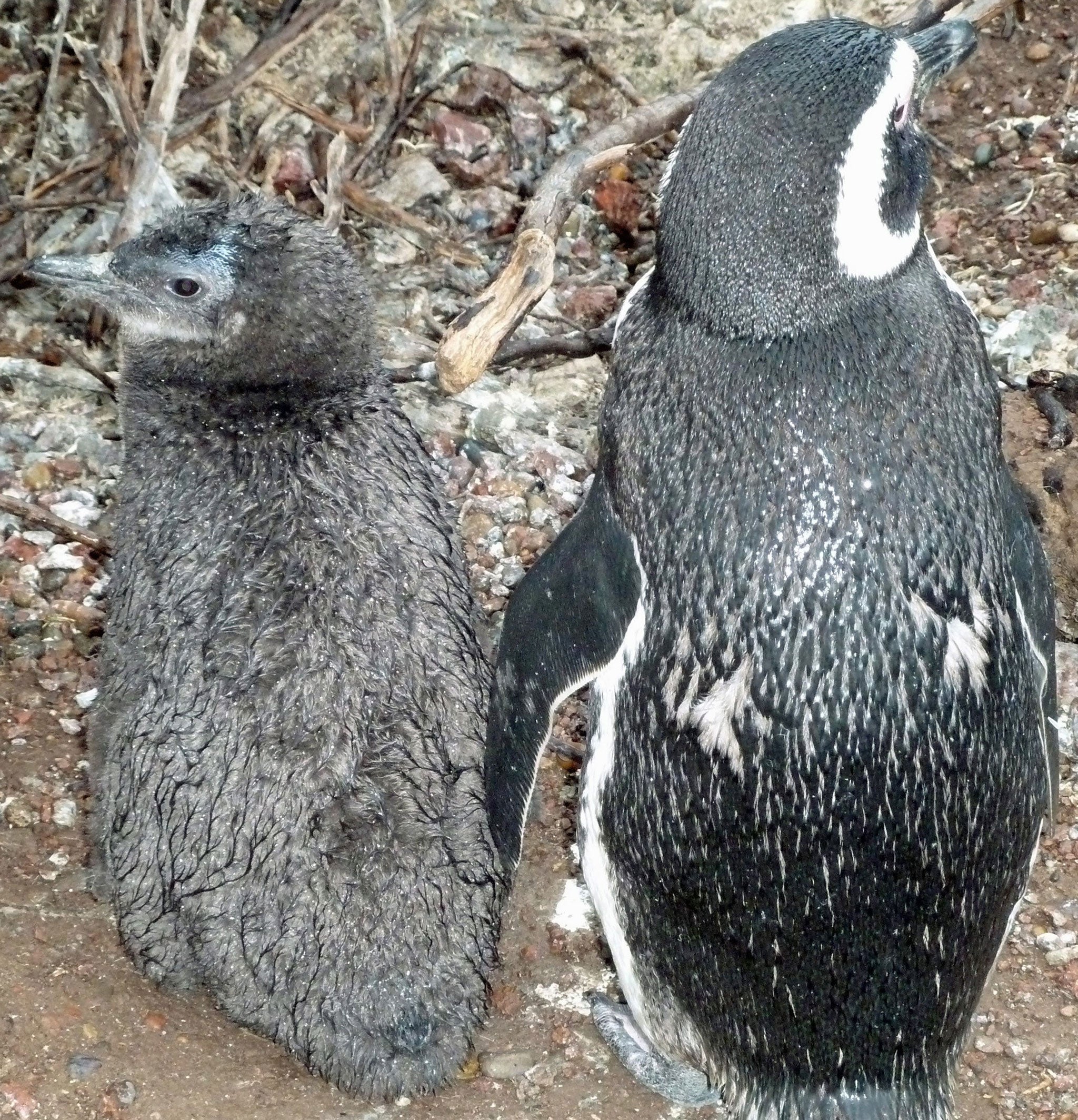Climate change 'killing baby penguins' in Argentina, scientists say
New studies show what experts say is the direct consequence of global warming on Magellanic penguins in South America

Penguins in South America and Antarctica are struggling to cope with extreme environmental conditions linked to climate change, research has shown.
Two separate studies have been published which scientists say are evidence of the increasing plight felt by the animals as a direct result of global warming.
According to one of the projects, climate change is killing off chicks from the world's biggest colony of Magellanic penguins in Argentina.
The penguins' home at Punta Tombo in the south of the country has suffered from an increased rate of powerful rainstorms and blistering heatwaves.
In the one extreme, the chicks' thin, downy coats mean they struggle to cope and can often be abandoned when a heavy downpour hits the colony.
At the other end of the weather scale their lack of waterproofing means they cannot swim to cool off if it gets too hot.
Dr Ginger Rebstock, from the University of Washington, US - who took part in a 27 year-long study of the 400,000-strong Argentinian colony, said: “We're going to see years where almost no chicks survive if climate change makes storms bigger and more frequent during vulnerable times of the breeding season, as climatologists predict.”
During the course of the study, an average 65 per cent of chicks died each year, with some 40 per cent starving.

Climate change was blamed for an average 7 per cent of chick deaths, but in some years was the most common cause of death. In one year, 43 per cent of all chick deaths were attributed to climate change and in another 50 per cent.
Starvation and the weather were likely to interact increasingly as the climate changed, according to the researchers.
“Starving chicks are more likely to die in a storm,” said Professor Dee Boersma, also from the University of Washington, who led the study.
Meanwhile, at Ross Island in Antarctica, Adelie penguins are struggling to feed themselves as melting sea ice breaks away into giant icebergs.
Scientists have spent 13 years collecting data on the foraging ability of chick-rearing Adelie penguins, which are dependent on year-round sea ice.
They found that under “normal” conditions they were able to cope with changes in sea ice concentrations.
But the appearance of giant icebergs reduced their chances of catching fish prey. How well they would be able to survive if such conditions became more common was unknown.
“If the frequency of such extreme events increases, then it will become very hard to predict how penguin populations will buffer future sea ice changes,” said lead researcher Dr Amelie Lescroel, from the Centre d'Ecologie Fontionnelle et Evolutive in France.
Both studies appear in the latest edition of the online journal Public Library of Science ONE.
Additional reporting by PA
Join our commenting forum
Join thought-provoking conversations, follow other Independent readers and see their replies
Comments
Bookmark popover
Removed from bookmarks